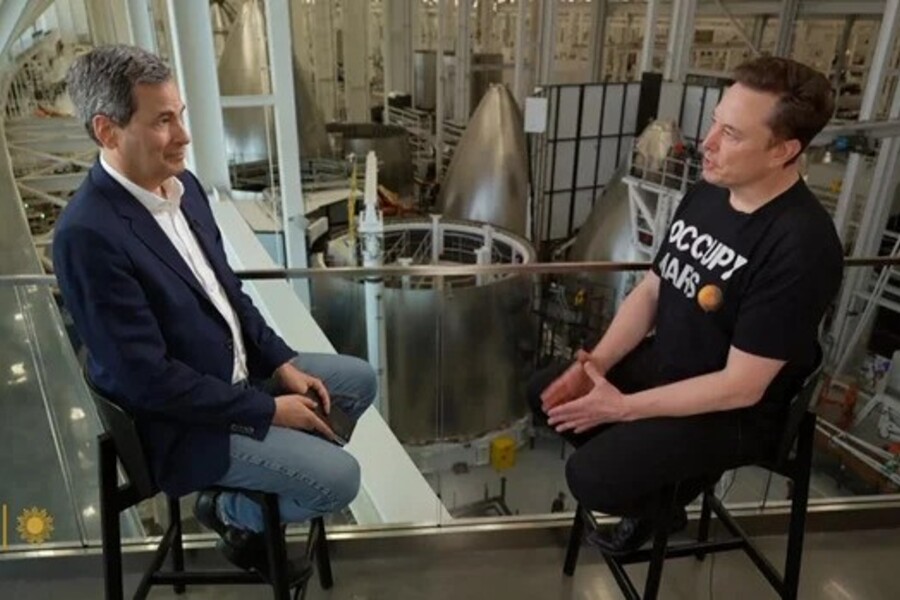Elon Musk’s brief but tumultuous stint in Washington, D.C., as the architect of the Department of Government Efficiency (DOGE), has ended in a blaze of controversy, leaving a trail of fired workers, battered agencies, and plummeting stock values—and now, a strained relationship with former ally President Donald Trump.
The tech mogul’s foray into federal bureaucracy began with high expectations and a close relationship with Trump, who last year called Musk “a truly incredible guy” and enthusiastically supported his $288 million in campaign donations. Early on, Musk was a regular in the Oval Office, calling himself “first buddy,” and was tasked with trimming what he saw as government bloat.
Armed with his signature bravado—and even a chainsaw he brandished at February’s Conservative Political Action Conference—Musk went to work. His “chainsaw for bureaucracy,” as he described it, slashed 250,000 federal jobs, cut deep into grants and staffing for agencies like the EPA and NOAA, and hit long-standing programs tied to climate research, Social Security services, and food safety.
But the billionaire’s radical restructuring quickly ran into headwinds. Lawsuits, mandatory re-hirings, and threats from both inside and outside government left Musk embattled. At Tesla, where many hoped the CEO’s government role would bring innovation, profits instead fell 71%, erasing $100 billion from Musk’s net worth.
By May, Musk had retreated to his SpaceX headquarters in Brownsville, Texas, saying he would only work on DOGE “one or two days a week.” Even then, the shadow of his policies loomed large. During a recent interview at SpaceX—a bust of Musk nearby, defaced by critics—he was quick to defend his record. “It’s a bit unfair,” he said, arguing that DOGE had become a scapegoat for any unpopular cut, real or imagined.
His frustrations boiled over as the Trump administration’s massive spending bill—the so-called “Big, Beautiful Bill”—began advancing in Congress, projected to add $3.8 trillion to the national debt over the next decade. Musk, who had promised to save taxpayers $2 trillion but managed only a fraction of that, was livid. “I was disappointed to see the massive spending bill, frankly,” he told CBS News. “It increases the deficit, doesn’t decrease it, and undermines the work DOGE was doing.”
That criticism found its way to the White House. Within 24 hours of CBS airing Musk’s remarks, the billionaire was out of DOGE and the Trump administration, officially citing the end of his 130-day contract—but signaling the political rift had widened.
Though the White House staged a farewell event, with Trump insisting “Elon’s not leaving,” the bond between the two once-closely allied figures has cooled.
Musk himself acknowledged the limits of his time in government. “DOGE is gonna continue, just as a way of life,” he said, but insisted his main focus must return to his companies—Tesla, Starlink, Neuralink, and the rest of his empire of futuristic ventures.
When pressed about the ideological clash at the heart of DOGE’s mission, Musk leaned on his libertarian instincts. “The government is like the DMV that got big,” he quipped. “When people say, ‘Let’s have the government do something,’ they should ask, ‘Do you want the DMV to do it?’”
Even as he pivoted back to his core businesses, Musk’s belief in bold risks remained undimmed. Moments after the interview, he watched the ninth launch of his Starship rocket—the largest ever built—aiming to prove that Mars was within humanity’s grasp. The previous two launches ended in fiery crashes, or as SpaceX terms them, “rapid unscheduled disassemblies.”
As the rocket roared skyward, Musk reflected on the journey. “I can’t guarantee success,” he said with characteristic candor, “but I can guarantee excitement.”
In the end, the Starship once again failed to survive re-entry. The debris-strewn aftermath served as a fitting metaphor for Musk’s DOGE experiment: ambitious, controversial, and ultimately, another hard lesson in the cost of disruption.
What Happened?
Elon Musk’s Department of Government Efficiency (DOGE) fired 250,000 federal workers, slashed agency budgets, and tried to streamline bureaucracy—but faced intense backlash and eventually failed to meet its financial goals. Musk’s criticism of Trump’s spending bill signaled a break with the administration, ending his official role after just 130 days.
Why It Matters
Musk’s efforts highlight the complexities of implementing radical reforms in government and the potential fallout when ideology collides with entrenched systems and public expectations. His tenure shows that even the world’s richest man can’t chainsaw his way through bureaucracy unscathed.
What’s Next?
While Musk steps back from politics (at least for now), his companies—Tesla, SpaceX, Neuralink, and others—remain at the forefront of innovation. As he refocuses on space and technology, Washington will have to decide how much of his legacy at DOGE to keep—and whether his calls for smaller government will echo in future policy debates.

